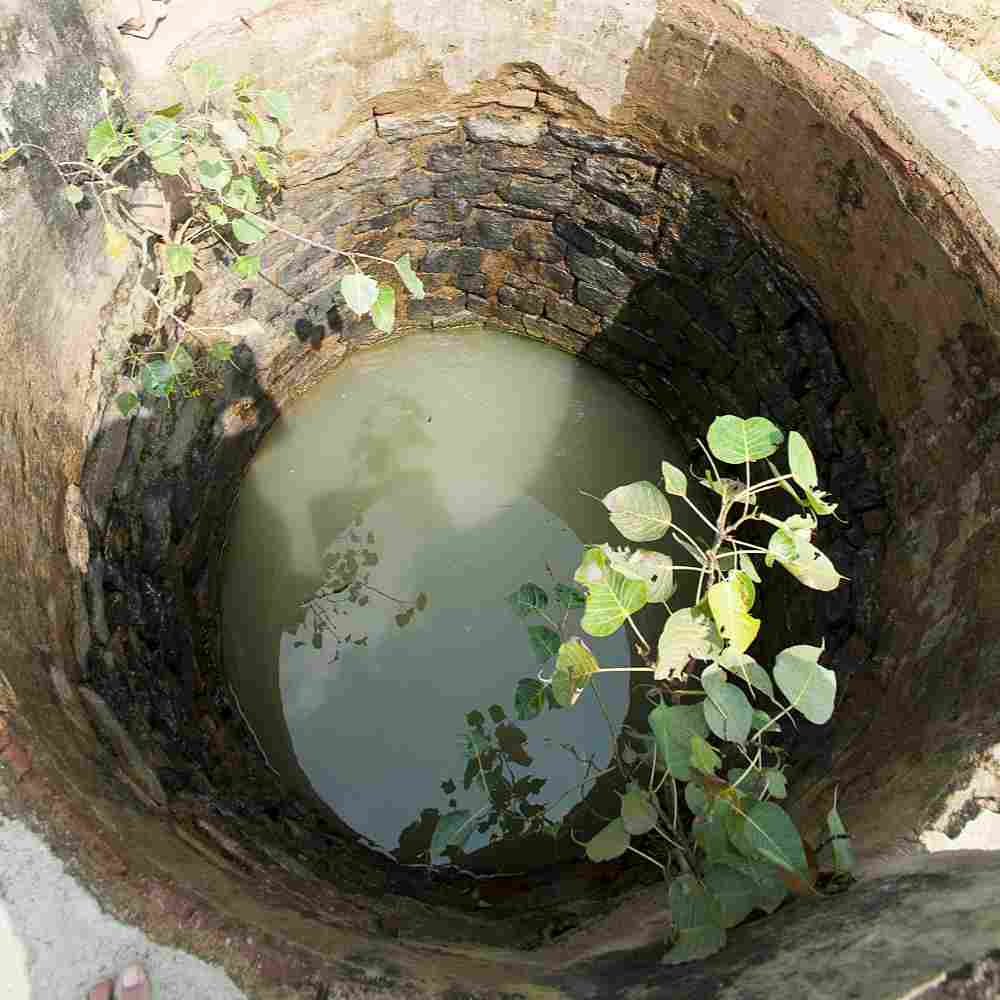
Water Well Drilling for People in Need
There are numerous organizations that offer well drilling services. While many such organizations do so for profit, other organizations—including GFA World—drill wells free of charge for impoverished communities in need to provide access to clean water. Worldwide, particularly in developing regions such as Asia and Africa, 1.1 billion people lack access to clean, safe drinking water.1 Water well drilling offers a potential solution to this water crisis.
According to the United Nations, “About 4 billion people experience severe water scarcity during at least one month of the year.”2 A deeply dug well, however, eliminates people’s dependence on surface water and can offer water year-round from aquifers deep below the earth’s surface.
In ancient times, wells were dug by hand, but this method can only produce a shallow well that may go dry in times of drought and typically lacks any type of casing to prevent contamination.3 Most water wells today are drilled with specialized equipment, including rotary bits that remove surrounding soil and stone.4 These wells typically have some sort of well casing, a tube-shaped structure inside the well, to maintain the well opening and help prevent dirt or other contaminants from mixing with the drinking water.5


Even underground water levels can vary with changing seasons, however, which causes some wells to “go dry.”6 The average well is only 100-300 feet deep.7 A Jesus Well built by GFA World, however, is dug up to 600 feet deep, ensuring the surrounding community has water even in times of drought.
Go here to learn how much to drill a well.
Maintenance issues can also lead to a well losing its function, and thus its value. The World Economic Forum estimates 50,000 pieces of water supply structures installed in rural, impoverished areas of the world are now dysfunctional.8
GFA World ensures Jesus Wells are properly maintained through the years by partnering with local pastors and congregations, who are responsible for the well. The wells are also installed with a durable, heavy-duty pump, which is simplistic in design to make it easy to maintain and repair. As a result, these wells can last for decades and impact multiple generations.
As a new bride, Suhana moved to her husband’s village shortly after the village received a Jesus Well; it was one of the first Jesus Wells ever installed.9 Before its installation, the villagers had suffered many hardships caused by their lack of clean water. A dirty pond had once been their only source of water for bathing, irrigation, cooking and drinking. Then a shallow well was dug, which brought temporary relief before it fell in disrepair.
Suhana witnessed firsthand the impact of this Jesus Well over the years. Daily, the well assisted Suhana and many others in essential tasks like cooking, cleaning and irrigating. With a reliable source of clean water, children weren’t as sick and missed fewer days of school. People could grow their crops and didn’t have to spend precious time traveling far distances to collect water. The Jesus Well brought stability and health, and it continues to impact the community 20 years later.

According to Borgen Magazine,
“Providing easily accessible and clean water improves impoverished communities’ living conditions and allows families to rise out of poverty.”10
Not only does access to clean water help families stay healthy, and thus enable parents to better provide for their children and enable children to survive and thrive, but it can boost income. Approximately 65 percent of the world’s poor in some way depends on agriculture for their livelihood, according to the World Bank.11
Vimal, for example, grew up in an agrarian village plagued by poverty and drought.12 During dry seasons, there was not enough water to go around for their livestock and crops.
The water they did have often caused sickness. One of Vimal’s family member began to complain of stomachaches, likely caused by consuming unsafe water. Two months later, he was dead. A young neighbor boy developed severe diarrhea from drinking contaminated water; he, too, died.
Then the village received a Jesus Well. “Because of this Jesus Well we are helped so much,” Vimal said. “My family doesn’t have to walk a far distance … Now the time [spent] fetching water can be invested in any other work.”
The community’s health has greatly improved, and they have ample water, even in the dry seasons. Farmers no longer fight over the scarce water supply. They can easily water their livestock and crops, benefiting their livelihoods. This entire community has been impacted by one Jesus Well.
1 Water Supply & Sanitation.” World Water Council. https://www.worldwatercouncil.org/en/water-supply-sanitation. Accessed August 11, 2021.
2 “The United Nations World Water Development Report 2019: Leaving No One Behind.” United Nations. https://unesdoc.unesco.org/ark:/48223/pf0000367306/PDF/367306eng.pdf.multi. 2019.
3 “Groundwater Wells.” United States Geological Survey (USGS). https://www.usgs.gov/special-topic/water-science-school/science/groundwater-wells?qt-science_center_objects=0#qt-science_center_objects. Accessed September 24, 2021.
4 “Groundwater Wells.” United States Geological Survey (USGS). https://www.usgs.gov/special-topic/water-science-school/science/groundwater-wells?qt-science_center_objects=0#qt-science_center_objects. Accessed September 24, 2021.
5 “Groundwater Wells.” United States Geological Survey (USGS). https://www.usgs.gov/special-topic/water-science-school/science/groundwater-wells?qt-science_center_objects=0#qt-science_center_objects. Accessed September 24, 2021.
6 “Groundwater Wells.” United States Geological Survey (USGS). https://www.usgs.gov/special-topic/water-science-school/science/groundwater-wells?qt-science_center_objects=0#qt-science_center_objects. Accessed September 24, 2021.
7 “Well Drilling Costs.” Central Valley Flood Protection Board. http://cvfpb.ca.gov/wp-content/uploads/2020/11/8b.-EIS-Attachment-Well-Drilling-Costs.pdf. Accessed September 23, 2021.
8 Mahed, Gaatheir. “Why are Africa’s wells failing?” World Economic Forum. https://www.weforum.org/agenda/2015/11/why-are-africas-wells-failing/.
9 “New Bride, New Village, New Well. GFA World. https://www.gfa.org/news/articles/new-bride-new-village-new-well-wfr20-03/. March 2020.
10 Beutel, Allie. “Water for Good: Building Sustainable Wells in the CAR.” Borgen Magazine. https://www.borgenmagazine.com/water-for-good-bringing-accessible-water-to-central-african-republic/. December 7, 2020.
11 “Agriculture and Food.” The World Bank. https://www.worldbank.org/en/topic/agriculture/overview. Accessed August 30, 2021.
12 “Jesus Well Relieves Water Crisis.” GFA World. https://www.gfa.org/news/articles/gfa-world-jesus-well-relieves-water-crisis/. March 2019.
